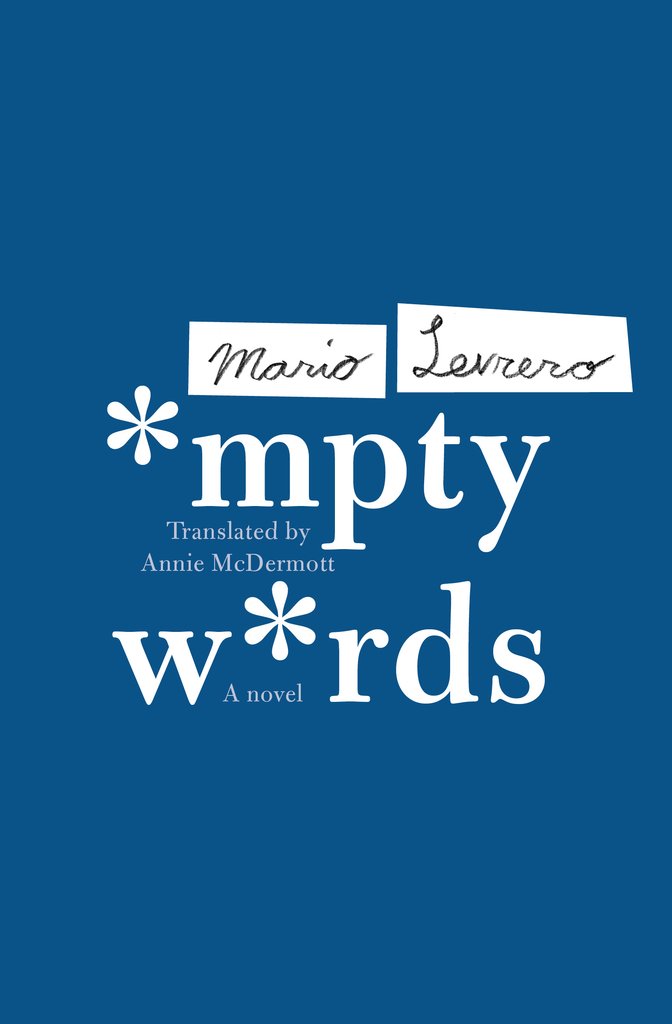Reviewed By Jeffrey Kelly

Not many people think about their handwriting beyond the basic idea of whether it is aesthetically pleasing or not, but Mario Levrero, the critically acclaimed Uruguayan novelist, did. For him, his handwriting was more than just an added aesthetic for him to either be applauded or persecuted for. He believed that a person’s script had a profound connection with their character, and by changing their handwriting, anyone could, in fact, change other things about themselves. In his novel Empty Words, translated by Annie McDermott, Levrero experiments with his hypothesis by conducting handwriting exercises with hopes that as his handwriting improved, so would his character. Though while doing these exercises the reader sees Levrero muses about his life and the reason for his existence just as much as his handwriting
The novel follows Levroro’s journey for a whole year, September 1990 to September 1991. It is separated into two pieces. The first one “Exercises,” which is compiled of all his thoughts while completing his daily handwriting exercises and then the other “The Empty Discourse,” which focuses more on Levrero’s stream of consciousness uninhibited by him having to complete a daily task. The way Levrero writes to the audience is intriguing; it’s not the story you would expect at first glance when you discover that its premise focuses on Levrero doing handwriting exercises. This novel feels mostly comforting, relatable, and philosophical at times. The best word to describe it would mostly be personal.
As you read, you feel as if you’ve pried off the lock on Levrero’s diary and began reading on page 5, September 10, 1990, yet somehow it doesn’t feel like an invasion of privacy. Levrero writes in such a way that beckons the reader to delve deeper into what some might consider being private moments of thought. And with these moments, you get to know Levrero without him ever truly having to introduce himself. You get to know him at a leisurely pace as you would any friend. He doesn’t force every single detail about himself down your throat; it slowly unravels as he continues his exercises. The book meanders through his consciousness in such a refreshing way. Due to the constraints of him only writing enough to suffice for the handwriting exercise of the day, the entries vary in size and never feel monotonous and disorienting. You can almost feel a kaleidoscopic range of emotions from Levrero as he battled with his handwriting, the triumphs of consistent beautifully legible handwriting, and the failures when he forgot to even do the exercise. This novel is an effortless peak into Levrero’s psyche without ever subcomming to the vexing troupe of a know it all writer.
Levrero takes an exciting approach to creative nonfiction writing. He somehow balances the chaos of one’s mind with the most straightforward task creating a story that feels so different and effortless. His constant self-analysis and analysis of the people around him and how he lives his life is quite exciting and offers up a very captivating perspective and narrative voice. The book addresses the topics of self-worth, finding meaning in one’s life, and figuring out where the narrator belongs. These are all things that everyone struggles with. That relatable quality of Levrero’s piece speaks volumes of the implications that readers are left with. I highly recommend this book to anyone who has ever wondered about their character.
